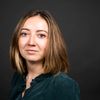Editor’s note: We often hear about the impact of the coronavirus pandemic in numbers of cases and deaths. But each data point represents a human life whose loss is felt by countless other people. We are chronicling some of them in an obituary series called Lives Remembered. If someone special to you has died of COVID-19, please tell us about them by emailing newstips@seattletimes.com with the subject line “Lives Remembered,” or by filling out the form at the bottom of this page.
• • •
For many years, early in the morning before cars streamed into downtown Seattle, or the vendors at Pike Place Market had stocked their stands, Leo Sreebny would walk the waterfront. Even into his late 80s, his pace was swifter than most. But he’d stop for conversation. Those who met him were greeted with a broad smile from a mustachioed man just a little over 5 feet, who preferred bolo ties to neckties, suspenders to belts.
Dr. Sreebny loved the water. In his later years, he and his late wife Mathilda, or “Mickey,” lived in a condo across from the Seattle Aquarium. Years earlier, when their two sons were little, the family spent weekends on their small cabin cruiser called the Sea Lily, named after Dr. Sreebny ’s mother. He was a swimmer. And he longed for the waterfront redevelopment along Alaskan Way to be completed. But he wouldn’t see it.
At age 98, Dr. Sreebny died April 5. His sons, Daniel and Oren Sreebny, said the cause was complications due to COVID-19.
Leo Sreebny, born in the Bronx, New York, in 1922, was the son of Jewish immigrants from Ukraine. He grew up at a time when kids could camp in parts of the city — and he did. One night, Leo and a friend pitched a tent in a dry riverbed that, after a storm rolled through at a late hour, wasn’t dry by morning.
He graduated from high school at 15 and he’d hoped to become a doctor. But medical school quotas for Jews kept him out. He trained to become a dentist, instead.
He worked like he lived his life, his sons said: with a sense of humor. He spent his young adulthood in the Army and Navy, and though he spoke little about this time and his time afterward in Guam, his sons remember stories about fishing for barracudas and building his own steel Quonset hut.
After two years in Guam, Mickey and Leo moved to Chicago, where he earned a master’s degree in pharmacology and a Ph.D. in medical pathology, and they had two sons. When he was asked in the mid-1950s to establish what became the University of Washington’s oral pathology department, he and Mickey headed west for a visit.
A faculty member offered to take them for lunch. “He drove and drove, across a bridge to an island and across another bridge,” Dr. Sreebny told a UW history project. “Where the hell are we going?” It started to snow. Before long, they arrived at “a place called Snoqualmie.” And lunch, the Sreebnys learned, was found at the top of the ski lift. “I’m screaming, ‘Oh God, this is beautiful! I’ve never seen anything as beautiful as this!’ We arrived at the top to find that the restaurant was closed.”
They decided to call the Pacific Northwest home.
Dr. Sreebny had a wonderful sense of humor, his sons said. He kept a ferret named Freddy in his laboratory at the UW, and one day, cooked 50 pounds of oysters under the laboratory hood. The only thing that unnerved him was when he couldn’t coax a smile out of those he met. “People he worked with, he treated like family,” said Oren Sreebny, who lives in Salem, Oregon. “It was all part of the same world view. I think that’s pretty rare.”
Music filled the family home. On accordion, their dad played Hebrew songs and Broadway hits: “Hernando’s Hideaway,” a favorite from the musical “The Pajama Game,” and “Sue Me” from “Guys and Dolls.” Friends often visited the family’s Northeast Seattle house and Dr. Sreebny would hand out drums and whistles at holidays, such as Thanksgiving and the Passover Seder.
“They had so many close friends that for a while I always got confused as to who was a family member and who wasn’t,” said Dan Sreebny, who lives in Issaquah.
Dr. Sreebny played tennis, made wine and loved to garden. He was involved in Music of Remembrance, an organization dedicated to remembering the Holocaust through music. He made many international trips, including several to Israel, where he and the family spent two of his sabbaticals. His professional success grew: He established a dental research center at the UW and later served as dean at the School of Dental Medicine at the State University of New York at Stony Brook; Leo and Mickey lived in New York for about three decades. They returned to Seattle in 2006, before her death in 2009. He established the Mickey Sreebny Memorial Scholarship with the University of Washington’s Stroum Center for Jewish Studies in her name.
In late March, Dr. Sreebny got sick.
A cough worsened, and he was hospitalized. On March 29, he tested positive for COVID-19.
A nurse who cared for him said he tried to order wine when he was admitted. The nurses and doctors loved his smile, his sons said. Daniel was lucky enough to visit him four times. “He wasn’t seeing us,” he said. “He was seeing someone wearing a mask and a gown and gloves. But we were grateful we had that.”
Daniel and Oren, and their spouses, buried their father at Bikur Cholim Cemetery on April 7.
There is a tradition in Jewish storytelling about 36 righteous men for “whose sake the world survives,” Daniel said.
“My wife still believes that my father is one of them. Or was one of them,” he said. “The special people who keep the world going.”
• • •
